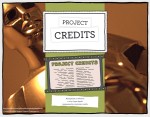People don’t bother with understanding. Really, they don’t. When I tweet something like “Maybe it’s…

Extrinsic Motivation
In 2001 American energy and services company Enron collapsed into bankruptcy. Apparently, its managers liked their bonuses more than they liked the truth, and their own paychecks were more important than the success of the company. Parmalat, WorldCom, Madoff, AIG, Barings… corporate history is littered with the remains of organizations that allowed individual greed and egos to outgrow the solvency of the company.
Money makes the world…
Rewards are among the trickiest and least understood tools in management. When applied in the right way they can generate significant results.
Unfortunately, many managers still assume that money is the best way to make people work harder, longer, or more efficiently. And they also think money works best when implemented as a financial bonus. Stupid, because both assumptions are wrong.
Scientific research teaches us that incentives for performance actually work the other way around. The anticipation of a reward (money or something else) works contra-productive since it kills people’s intrinsic motivation. People no longer do things for the joy of the work. It isn’t a good feeling about a job well done that they are expecting anymore. They are expecting a reward. It’s called the overjustification effect.
Invitation to cheat
And there’s another problem with bonuses. Since people’s focus is on “getting a reward” instead of “doing a good job”, it increases the risk of cheating. Rewards based on outcome encourage people to take the shortest path to that outcome. Bad behaviors with dysfunctional side-effects undermine the organization’s performance, while the employees walk away with a bonus. Or worse, with their colleagues’ pension funds.
Taking the widespread use of bonuses in account, we can draw a sad conclusion: One of the biggest problems in the world is transferring the managers’ focus from extrinsic to intrinsic motivation.
 This post is part of my new article called the Kudo Box. It includes a list of literature references. If you want to stay up-to-date and receive all my upcoming articles, feel free to subscribe to my Management Workout mailing list.
This post is part of my new article called the Kudo Box. It includes a list of literature references. If you want to stay up-to-date and receive all my upcoming articles, feel free to subscribe to my Management Workout mailing list.





